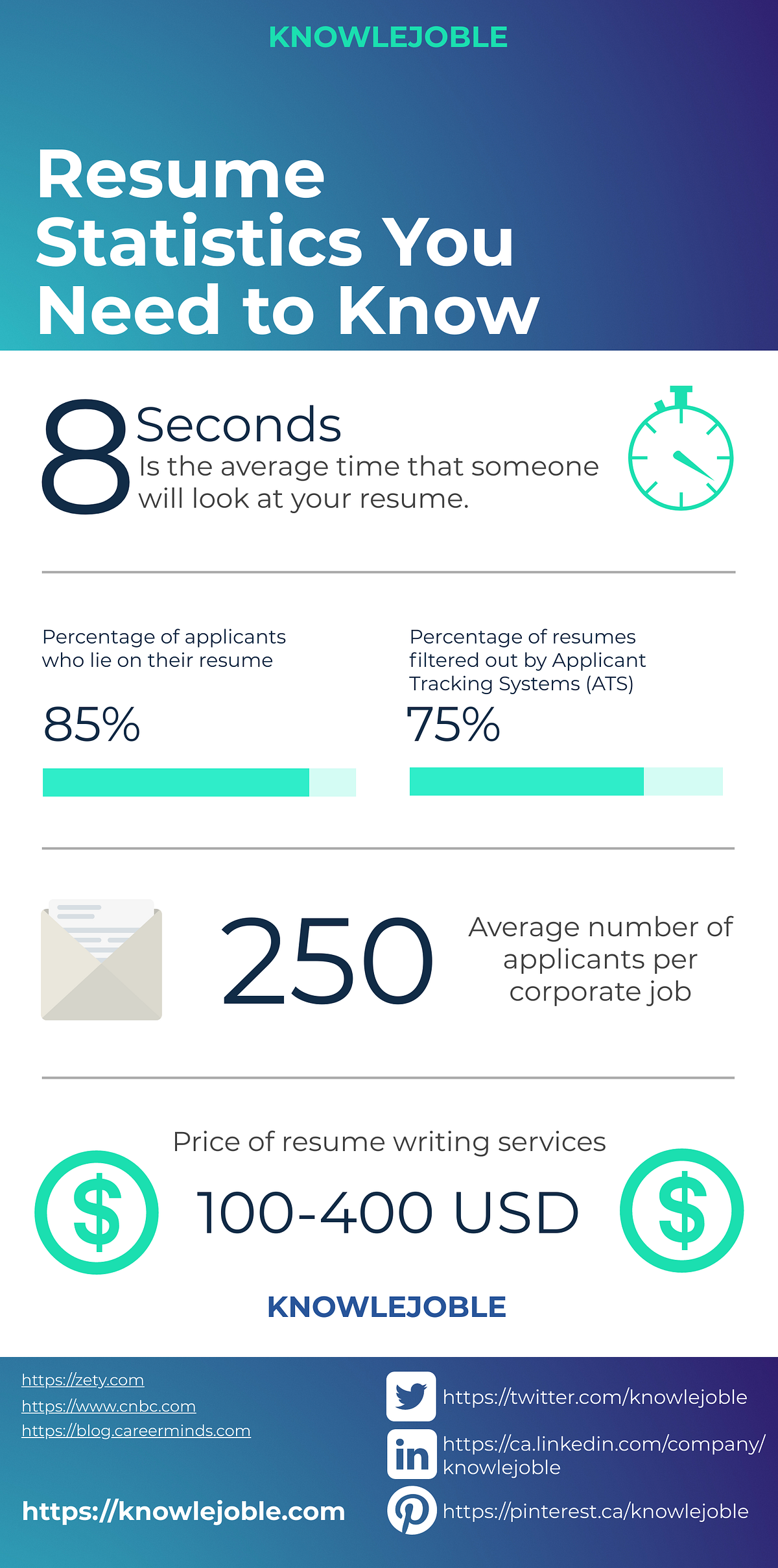Resumes are personal marketing documents
Most resumes suck.
Chances are, yours is bad (no really, trust me, it is).

My resume sucked too (and I’m a recruiter)… here’s the story.
I had finished a college internship and was taking a mandatory internship capstone course. One of the projects was to develop a resume for a posting I found online. The idea was to follow the resume building principles that the prof taught us in a lecture. I confidently handed in my resume, legitimately thinking I had rocked it, and got a 55% (the lowest mark in my entire University career).
I was pissed.
And since I disagreed with the feedback from the prof (not to mention the principles they had taught) I continued to use that resume to apply to jobs. Seems smart right?
Nope, turns out the resume did suck.
But not because of the reasons my prof had given. It sucked because resumes are hard, and I had approached it with the wrong mindset.
You probably are too!
Now I’m a recruiter and a career coach and provide resume feedback Every. Single. Day. So the joke is on my prof, I think.
You probably love to hate resumes
But there’s nothing like a resume that is done well. Unfortunately, 80% of the resumes I see do not catch my attention. Poor resumes don’t help you stand out from the crowd and results in you missing out. So how do you make a resume that is better than everyone else? And how do you captivate your reader within minutes (or seconds) of introducing yourself through an online document?
This infographic shows that you only have 8 seconds to make a powerful first impression, and you are competing with up to 250 other applicants on average! If you can understand the stats, it becomes pretty clear why you need to optimize your resume.

Sounds pretty impossible. But trust me it’s not!
When it comes to building an optimal resume there are three vital mindsets that will improve the traction of your applications. That’s right… mindset first, and content second.
Mindset Part 1: “I care about my reader”
Think about your reader before you think about you/your background/your experience. Think about who is going to be reading this resume. Ask yourself what they care about and what their priorities are. If you can find a name attached to the posting, even better! Do some research and see what their job title is. Tailor your resume just for them. In most cases, the reader will only look at your resume for eight seconds. That’s right… you only have 8 seconds to impress them.
Although a resume is about you, when you write it, try to stop thinking about you.
At large organizations, an HR representative or recruiter will be the first person to screen your resume. Here are some things they care about:
- Easy to read. Lots of white space and an easily followed format from top to bottom.
- Important information at the top of the document. Include a skills list (that is tailored to the job posting) within the first half of the first page. A recruiter wants to know you have the skills, and they want to know it quickly.
- Professional contact information. Include your professional email and cell phone. Don’t overshare by giving too many phone numbers, fax numbers, skype IDs, LinkedIn pages, pictures, Instagram handles, and addresses.
- Specific job titles and company names in the experience section. If you don’t tell say what company you worked at, it looks sketchy.
Mindset 2: “I’m different from other applicants”
You need to tell your reader why they should consider you above all other applicants. They don’t know what makes you unique unless you tell them. Don’t get me wrong… this is difficult. Especially if you’re more junior in your career. One of the best ways to do it is to talk about the numbers.
Numbers? Yes, numbers!
Quantify your experience. If applying for an administration position, talk about your experience in admin and the value you brought to the organization. Quantify your experience and demonstrate your value with numbers! Make your experience tangible and specific.
Here are some examples:
- Installed 500 stone countertops with a value of $1000 each.
- If you processed or created 80 invoices per day tell me! It is much more powerful than saying you “created invoices”.
- Deployed 750 laptops across 3 client sites with a 90% customer satisfaction rate. Completed the project 2 weeks early.
- Increased website traffic by 30% month-over-month for 12 consecutive months using SEO, SEM and influencer marketing.
Answer the 5Ws (who, what, when, where, why) and 1H (how) as much as you can on your resume.
Mindset 3: “I have skills, let me tell you about them”
The third mindset is confidence in the transferrable skills you have. Specifically, the ones that equip you to do the job you are applying to. Think about how to market your soft skills to the reader.
Think of resume writing as copywriting. If you can think from a marketing mindset then you’re more likely to get interviews!
If you have never thought about your transferable skills before, check out this transferrable skills checklist. Think about what skills you bring that helps you match the role. Then sell your experience accordingly.
It’s critical to market yourself. Don’t just write what skills you have, but tell me how those skills impacted the company you work for. And why I should care. Communicate the value of your transferable skills to stand out from the crowd.
Resume writing services can become a crutch
I get asked a lot if I would recommend a resume writing service. It’s a good option in the right situation.
When you get other people to write your resume for you, you become dependent on their abilities to sell your skills. They are going to be great at selling you, but you’ll never be able to sell your skills yourself. And you miss out on the opportunity to learn how to market your skills in your resume and your interviews. Resumes are great prep for interviews. So I recommend not using resume writing services unless you’re OK with being dependent upon them for future job applications too.
To understand the true mindset of resume writing, you need to go through the process yourself.
As an alternative to resume writers, resume review services can be great to help tailor and tweak your resume. They won’t build a resume for you, but they will coach you so you understand the process. I love to do resume reviews because they help to teach you the skills it takes to market yourself. And the lessons transfer beyond the resume into interviews.
You have 8 seconds to make a strong first impression
If you can get really good at marketing your skills in a resume, you can communicate to the resume reader in eight seconds or less why you should be interviewed. Your profile will be immediately filtered through to a hiring manager to review.
For an optimal resume, it’s valuable to have a second pair of eyes to review it. Our resume review service launches at the beginning of January. If you are wondering (even a little bit) if your resume can be tailored, tweaked or improved to become the best resume for your job search, the answer is yes it can. I’d love to teach you how to develop your own kick-ass resume and equip you to apply with a strong resume for every job for the rest of your life.
Your resume deserves to be seen. And you do too.
